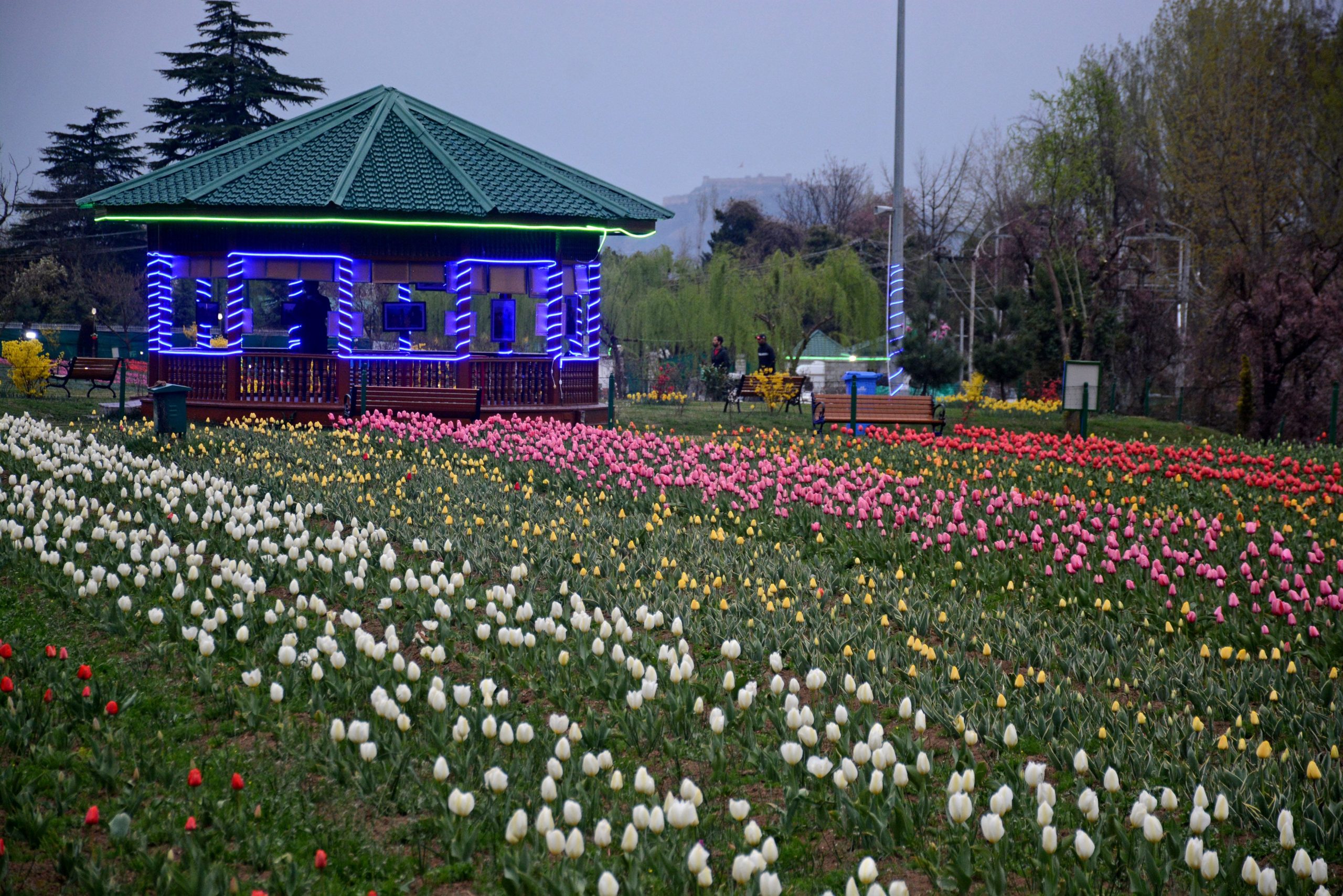New Delhi: The breathtaking tulip gardens of Kashmir have long been a major attraction for tourists, with the vibrant displays at Srinagar drawing visitors from across the country. In a significant step toward promoting sustainable floriculture and boosting farmers’ income, the Council of Scientific and Industrial Research-Indian Institute of Integrative Medicine (CSIR-IIIM), Jammu, is pioneering efforts to indigenize tulip bulb production through its Floriculture Mission.
Under the CSIR Floriculture Mission, several key verticals have been established, including the generation of high-quality planting material, expansion of floriculture areas, urban floriculture, post-harvest processing, and integration with apiculture. Additionally, the initiative aims to establish marketing linkages and domesticate wild ornamental plants. These efforts are dedicated to supporting farmers through research and development, particularly in the cultivation of high-value floricultural crops.
Aligned with the vision of Viksit Bharat 2047—Prime Minister Narendra Modi’s call for a self-reliant India—the CSIR Societal Mission programs, spearheaded by Union Minister of State for Science and Technology (Independent Charge) Dr. Jitendra Singh, have achieved remarkable milestones in recent years.
One of the most notable achievements is the introduction of tulip cultivation at CSIR-IIIM’s Bonera Station in Pulwama, South Kashmir. Initiated in 2022, the project began with 10,000 tulip bulbs and has successfully produced over one lakh bulbs within just two years, covering an area of more than 12 kanals this season.
During a media interaction at the Tulip Garden of Bonera Field Station, CSIR-IIIM Jammu’s Director, Dr. Zabeer Ahmed, underscored the importance of this initiative. He explained that the station currently houses eight tulip varieties under strategic research programs to develop indigenous tulip bulbs, study morphological characteristics, establish agro-technological protocols, and assess varieties for resistance to biotic and abiotic stresses.
“Indigenizing tulip bulb production will significantly reduce India’s reliance on imports, create economic opportunities for farmers, and contribute to the overall growth of the floriculture sector,” Dr. Ahmed stated.
The newly developed Tulip Garden-cum-Experimental Field at Bonera was recently opened to the public, drawing thousands of visitors from across the valley. This initiative marks a crucial step toward transforming Jammu and Kashmir into a hub for tulip bulb production, shifting India from an import-dependent consumer to a self-sufficient producer. By integrating scientific advancements with floriculture tourism, the CSIR Floriculture Mission not only aims to foster self-reliance in tulip production but also seeks to enhance the economic prospects of the region’s farming communities.





